….what Lekki deep sea ports has done also was to enter into agreements with barge operators. So, they are working on using barges to also move cargo from Lekki Deep Sea Port to off dock locations within Lagos and what it simply means is that they are also going to have less traffic, less trucks, fewer trucks on the road.
The Nigerian Ports Authority (NPA) has started wresting cargoes meant for Nigerian ports from neighbouring countries including Benin Republic, Togo, and Ghana.
NPA said with the inauguration of the Lekki Deep Sea Port in Lagos and improved ports efficiency and many cargoes have been pulled from the seaports of the neighbouring countries.
The Managing Director/CEO of NPA, Mr Mohammed Bello-Koko, disclosed this during an interactive session with newsmen in Lagos.
On January 23, the Lekki Deep Seaport described as the “game changer’’ in ports operation in Nigeria and the West African sub-region, was inaugurated by President Muhammadu Buhari.
The first commercial vessel had berthed at the nation’s first deep seaport on April 1, 2023 with a draft of about 16.5 metres.
“I must say it is the first time a government will start construction of a port, finish and commission it before leaving office.
“As you know, the Lekki Deep Seaport has been in the brain box for over 10 years; it is this administration that came in and gave all the necessary support through the Ministry of Transportation and the Nigeria Ports Authority (NPA).
“They have done the test run on all the necessary equipment, they have done their recruitments, people have been training and the vessels have started coming in, at least, we had a vessel that came in to take out empty containers and by April, we expect that the first commercial vessel will start coming.
“So business has started actually in Lekki Deep Sea Port. So, everything is ready and it is going to be automated as we said and all the gaps we observed either in Tincan Island Port or Apapa, whether in terms of scanners, equipment and others, you will find all of them in Lekki,’’ Bello-Koko said.
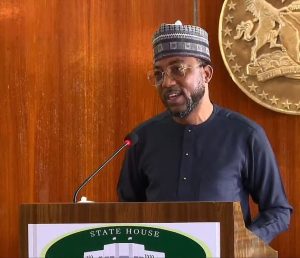
On the “game-changer’’ status of the Lekki Deep Sea port, the NPA boss explained that unlike two weeks it takes for cargo clearing at Apapa port in Lagos, at Lekki it would it would be out in just two days.
Bello-Koko said with the Lekki Deep Sea port the NPA had been able to wrest cargoes from neighbouring countries back to the country.
“It changes everything. For instance, you are an importer, and you know that going to Apapa, sending in your cargo or importing your cargo through Apapa will take you two weeks.
“Whether because the road is bad, whether because the Customs scanning system is limited, or probably the automation is not complete and so on and so forth, it will take you two weeks.
“But if you take it through Lekki, probably in two days you are out.
“First of all is for you to determine who are the importers of these cargoes and if you determine that, you will then ask why they are taking these cargoes to those locations.
“As I have said earlier, what we simply did was just improve efficiency. If you are efficient nobody wants to send his cargoes to Lome and starts dragging it down to Nigeria,’’ he said.
On trans-shipment of cargo, Bello-Koko said the Authority was already working on it, pointing out that neighbouring countries have it but Nigeria currently does not have.
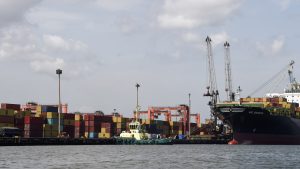
He said:“Neighbouring countries have cargo trans-shipment nut we don’t have. So you find that the bigger vessels go to Lome and then they use smaller vessels to bring the cargo into Nigeria.
“But that is what Lekki wants to start doing and they already have a market for it, it is just to have the necessary cooperation by relevant government agencies, so that happens.
“So you find that, that brings in more revenue to Nigerian Port Authority, more activites into Nigeria also. So it changes that perspective. We are no more going to have situations where cargo cannot come into Nigeria because of lack of port infrastructure.
“And the interconnectivity from Lekki to other locations, you know what is going on, there is a survey for a train to be linked there. So it changes everything. It also creates competition; it means that the existing terminal operators need to sit up so as not to lose business to Lekki.’’
Bello-Koko also disclosed that at least four deep sea ports are coming on board across the country as part of making Nigeria a regional martime hub in Africa.
Already, he said, some people and firms have concluded plans to invest in other deep sea ports since they have seen that it is “profitable and possible’’.
“We have had proponents that have been coming with their ideas. I can tell you, we have like three or four now that are really, really serious about investing in other Deep Sea Port. So they have seen the possibility, it can be done.
“They understand that somebody has set the pace and they see that it is going to be profitable based on the projections.’’
On the progressive revenue generation drive of the NPA and plans to raise the bar by 30 per cent, Bello-Koko recalled that it had increased revenue from about N317 billion to over N360 billion in 2022.
“I also said that we would ensure that we increase our revenue. We have increased our revenue from probably about N317 billion to over N360 billion in 2022. We transferred about N80 billion to the Consolidated Revenue Fund (CRF) in 2020 and over N91 billion in 2022.
“We have also improved on staff welfare whether it is in terms of their offices, their salaries and allowances, provision of buses, working tools, uniforms where necessary and for the physical port infrastructure, that is a bit of a long term project, but we have gone very far.
“I can say that easily we should be able to increase our revenue by between 20 to 30 per cent in the next year. Now, don’t forget that NPA has not increased its tariff since 1993 and every time you hear the cost of doing business at the port, people ascribe it to NPA, but it is not.
“If the Nigerian Customs increases its tariffs, it increases the cost of doing business at the port, if immigration or the Standards Organisation of Nigeria (SON) increases their tariff, or of NIMASA increases, the cost of doing business at the ports increases.
“When vessels call at the port and spend longer days before it offloads its cargo, that is also cargo waiting time incurring demurrage. We are working to ensure that we reduce ship waiting time and the cargo dwell time, but even though we have not increased our tariff for how many decades.
“We are actually able to increase our revenue and we are looking at the possibilities of reviewing some of our tariff, because there are some tariffs that haven’t changed even when the naira to the dollar exchange rate has changed several times. As we speak, International Oil Companies (IOCs) are paying N1000 to use our channels, so those are things we are working on,’’ the NPA MD further explained.
On the rehabilitation of the existing ports in the country, Bello-Koko said Tincan Island port, Apapa port and the broken down and collapsed Escravos Break Water required huge funds to fix urgently.
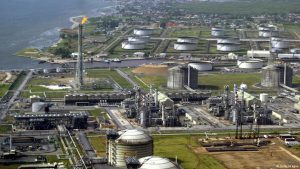
“ We are looking for funding and necessary government approvals to ensure that we start rehabilitating all the ports, which include Tincan Island, Apapa and the broken down and collapsed Escravos Break Water.
“There are also jetties and berths at Port Harcourt Port, Onne and Warri and Calabar.
So these are the plans we put it place, so for each of them, we have done quite well.’’
Highlighting the challenges facing Tin Can and Apapa ports, Bello-Koko said: “The problem first of all with the Tin Can and Apapa ports is the total land size, the landmass; those ports are not going to increase in sizes and they are currently operating far beyond the installed capacity.
“So, that already is a problem on its own. The stocking area in these two ports is not large enough to contain the cargo that is coming in and ensure smooth and quick sharing of the cargo.
“Now, the road to Tincan Island Port, the one right in front of the port is currently being worked on and expanded by Dangote and Hitech and what the Lagos State government has done is from the junction to Epe down to the boundary with the neighboring states.
“They are working on it and then the other State will also continue that construction which we all know is taking place. What this means is that we are going to have good roads moving cargo from Lekki all the way to outside Lagos and for the trucks coming into Lagos, probably factories within Lagos.
“We can see that the road is being worked on, but what Lekki deep sea ports has done also was to enter into agreements with barge operators. So, they are working on using barges to also move cargo from Lekki Deep Sea Port to off dock locations within Lagos and what it simply means is that they are also going to have less traffic, less trucks, fewer trucks on the road.
“Another thing is that we are already working to deploy electronic truck call-up system, which is what we introduced in Tin Can and Apapa that has brought a bit of sanity. So, abinitio, there was a plan also for truck parks, the port itself is providing a lot of parking space for trucks.
“So it is more like a holding bay within the port itself unlike Tin Can and Apapa where the original locations for parking of trucks have been given to concessionaires who have turned some part of it to warehouses, operational areas and stocking area. There is a plan already and they know the problems. We know the problems in TinCan and Apapa and we are doing everything we can to ensure that it does not repeat itself.
“Finally, there are few tank farms close to the port itself. Now, of course, you can say with Dangote refinery what is going to happen, but Dangote is going to be transporting most of liquid products via pipelines.
“In Apapa and Tincan, you have tank farms just beside the ports themselves, so the traffic in Tincan and Apapa is not just the traffic for cargoes, but we also have tankers who have added pressures on the roads.’’
On how much regulatory control NPA has over the deep sea port like the one Pinnacle Oil has which is about 11km into the sea – big mother vessels will come, discharge through pipes to the land depot terminal, Bello-Koko declared: “We do and they call it an SPS. It is a Single Port Model that is mostly used for liquid cargoes, whereby the vessels do not need to come on shore to either load or offload.
“We give approvals for locations of those things, we also do coordinate, we also know when their vessels are coming in, we need to regulate their in and out, they are also using our channels.
“So whether you have an SPM, it is the NPA’s channels that those vessels would come through and the regulatory functions are as it relates to their marine activities, but as for the evacuation and loading, that is between them and Nigeria National Petroleum Corporation (NNPC) Limited and whoever the importers are.’’
On NPA’s involvement with the Lekki Port, the CEO recalled that initially the idea was for NPA to have about 20 to 25 per cent, but felt there was need to reduce government involvement in private ports and reduce our equity to about 5 per cent.
“But irrespective of the equity that NPA owns in that port, we still remain the regulator. We are the port regulator, we regulate the port activities and there will be revenue coming from there.
“Of course, we know the issue of the land, there is contention as to who owns the land from a certain distance between the ocean and the land. It is owned by the government or NPA, but that was sorted out between Lagos State and the Lekki Deep Sea Port so that equity that we gave actually introduced statutory cover to the fact that you cannot have a private port in Nigeria and government does not have equity in it. So that is the essence of that equity.’’
Shedding more light on barge operations, he explained that it was part of strategies to use multi-modal means of transportation in the maritime sector.
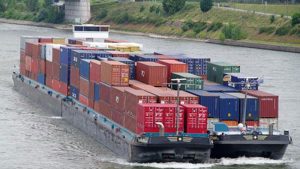
The NPA MD said:“ So for the barge operations, what we did, first of all, is that we realized that for us to get multi modal means of transportation, you need to provide multiple ways of transportation apart from the road, which is the normal one.
“We are looking at rail, sea, and we have encouraged barge operations. We spoke with the terminal operators and a few individuals that had a few barges to say, ‘let us give you few license to start moving cargoes via barges.’
“But of course, we gave them Standard Operating Procedures (SOPs) and conditions and they have been doing that over a year without the authority charging them anything and we realised that the total percentage in terms of cargo being moved by barges increased astronomically from 10 per cent, it doubled over.
“So we now have situations whereby containers and other cargo are being moved from the ports to off dock locations and other jetties and it is really encouraging and that has reduced the number of trucks that are on the road.
“Some of the barges take 30 to 40 containers per movement, so that is 30 to over 40 trucks we are taking off the road. So imagine moving cargo from Tin Can and Apapa to Ikorodu or to Ijora, what you have done is that you have reduced the traffic that would have come to the ports. We have also realized that there are a lot of substandard barges, some of the pilots do not have the relevant and required pilot licenses, some of the badges don’t have communication equipment also and we came up with an SOP to ensure that all those are in place.
“Before we came up with the minimum safety standard for truck. We also came with minimum safety standard for barges, we also gave them the SOP on the times that they are allowed to move, the routes that they should take, the communication that should take place between them and our control towers.
“We also encouraged them to use self propelled barges, because most of them have a tug pushing the barge, which is not very efficient and it is very expensive, but we also tried to regulate the cost so that we get more importers or exporters to use the barges.’’
On effort at improving infrastructure in Warri, Calabar and Port Harcourt ports, Bello-Koko said: “What we observed is that first of all, the ports in the East have the longest channels – for instance Calabar has over 110 km from the fairway buoy to the Port itself, then Warri has over 100 kilometres from the fairway buoy to the port.
“Of course, the multiple issues of security discourage the pilots themselves and the ships from coming into port at a certain time. After 4 o’clock, nobody actually comes in there and then the infrastructure was bad.
“So the first thing we did was to say, okay, you know what, let us improve security patrol within those channels and so we had a discussion with the Nigerian Navy and I will like to appreciate the Chief of Naval Staff for his cooperation.
“We have more security patrols along the channel and then we bought more marine equipment and we have given tariff relief especially in Calabar for importers. That way, they can use flat bottom vessels to come in there. We are currently working on the rehabilitation of the collapsed breakwater in Warri.
“A breakwater is a physical engineering infrastructure in the middle of the sea that is meant to reduce siltation and migration of silt into the channel where it collapsed over 10 years ago.
“But we have been able to conclude and finish the surveys as it relates to the breakwater. The essence here, is to reconstruct it and it is going to cost a lot of money over a hundred million dollars to construct a new one. So, by the time you do that, you reduce the siltation into the channel.
“But what we have been doing is remedial dredging up to the fairway buoy and that way, you will have more vessels coming in, because two to three years ago, the instances of vessels going aground was quite frequent and we have been able to resolve that.
“We encouraged the port managers in those locations to also go out and find importers and businesses around their locations and neighboring states who are importing through Lagos and encourage them and let them understand the ports are viable, asking them if they can bring in some of their cargoes through these ports and you see even in Calabar now you have more vessels coming into Calabar.
“We are ensuring that all the necessary cargo handling equipment are been provided by the terminal operators. We are monitoring the terminal operators to ensure that the agreement we have with them in terms of provision of cargo and equipment are in place. We are taking our responsibilities very seriously in those terminals and ports.’’
Also commenting on the export processing terminal and how it has boosted exports, Bello-Koko said under the presidential directive in terms of ease of doing business, NPA was mandated to set up export warehouses and terminals within the ports.
He explained: “But of course, you know that the size of these ports will not warrant that we create those export processing terminals within the ports, so we had to think outside the box and that is why we now advertise and ask for interested investors to show interest in developing those export processing terminals.
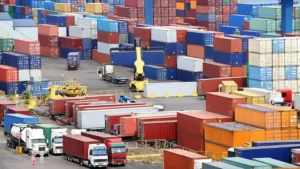
“The essence of the export processing terminals is to have locations where an exporter will bring in his cargo, the cargo will be sorted out there, it will be tested, it will be certified, it will be repackaged, it will be containerised and then sealed and sent directly to the vessels.
“We are concentrating now more on agro produce and exports and that is to diversify the economy. Before that, we used to have a lot of cases of perishable items getting spoilt at the ports before they are even exported and that is due to so many reasons either because of the NXP forms that have not been filled up or delay in loading or vessels that we are leaving behind export cargo because they had more interest in taking out empty containers because of probably demand for high demand for empty containers in Asia.
“So the export processing terminals are meant to reduce that gap and also reduce cost of export. We gave out 10 licenses distributed around Lagos and neighboring States and we have given them our conditions. The conditions are of course, we must have a weigh bridge, internet, you must have accommodation for Customs and so on and so forth.
“And you must have laboratories for testing and certification these agric products and out of the 10 about four we are very sure are ready to start business out of which two are more serious.
“Then we had sat down with the shipping lines to also streamline charges and costs to ensure that whatever tariff is charged at the export processing terminal, there is no charge by the terminal operator so that there won’t be double charges, and we have also gave those provisional licenses and also gave them the data that at a certain date, we will terminate any license held by any company that has not met our requirements.
“Currently, what we have done is to encourage local investors to be engaged and to be involved in the setting up of this export processing terminals and we keep encouraging Nigerians to invest in it.
“We will keep doing that until we find Nigerians that can do it, but I don’t think there is any business Nigerians will not be able to handle, it is just to have the right and enabling environment.
“So, that has really helped and we have less complaints although, it is difficult to say all exports must go through the export processing terminals, because there are some Domestic Export Warehouses (DEW) which are being managed by Nigeria Export Promotion Council (NEPC) and are working with them to ensure that as they are coming in, they have smooth and quick entry into the ports using the ATO app.
“So this is just to encourage even small exporters, manufacturers, agric producers to be able to export agric produce when that time comes.’’








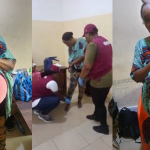
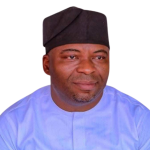

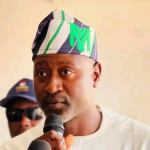
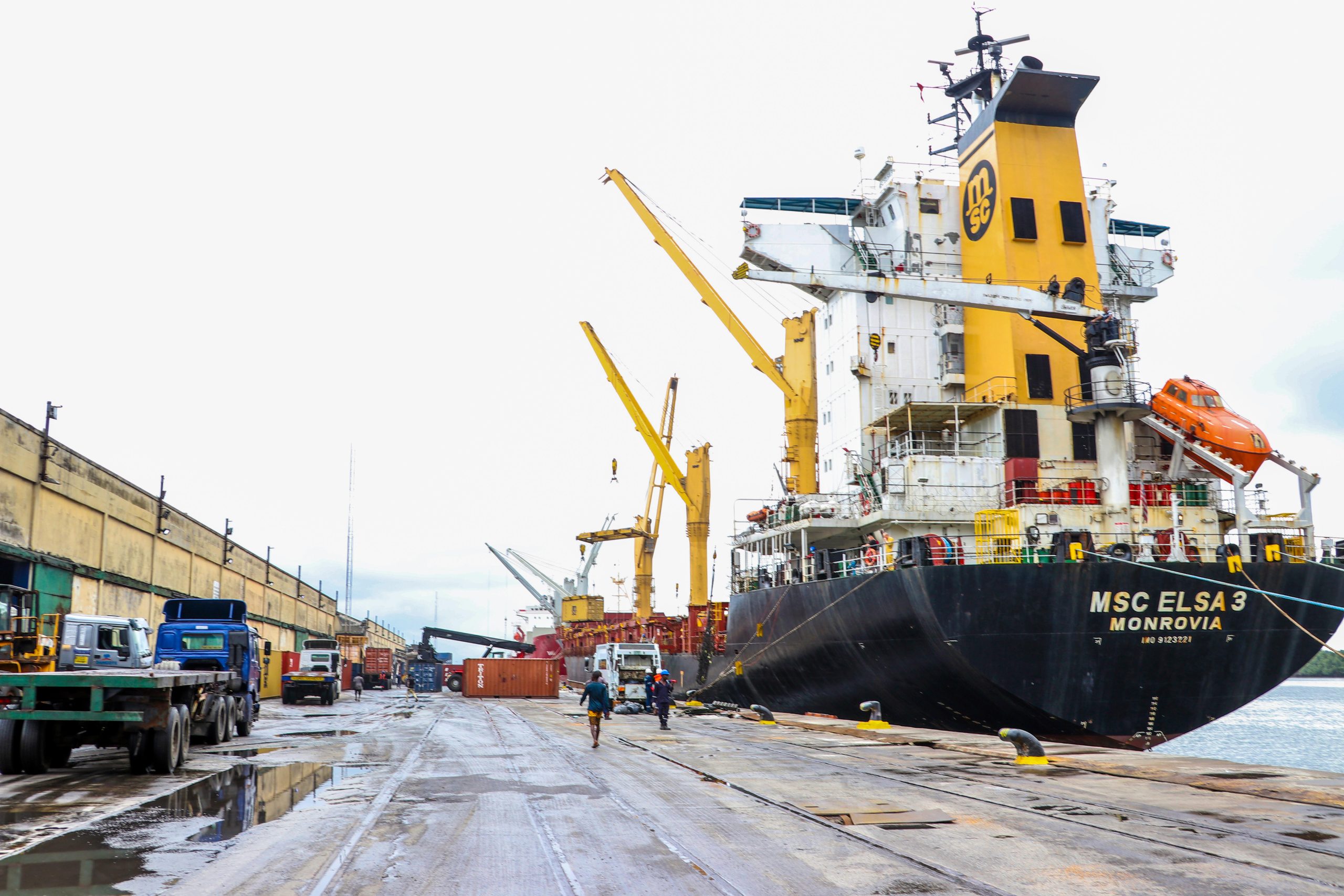








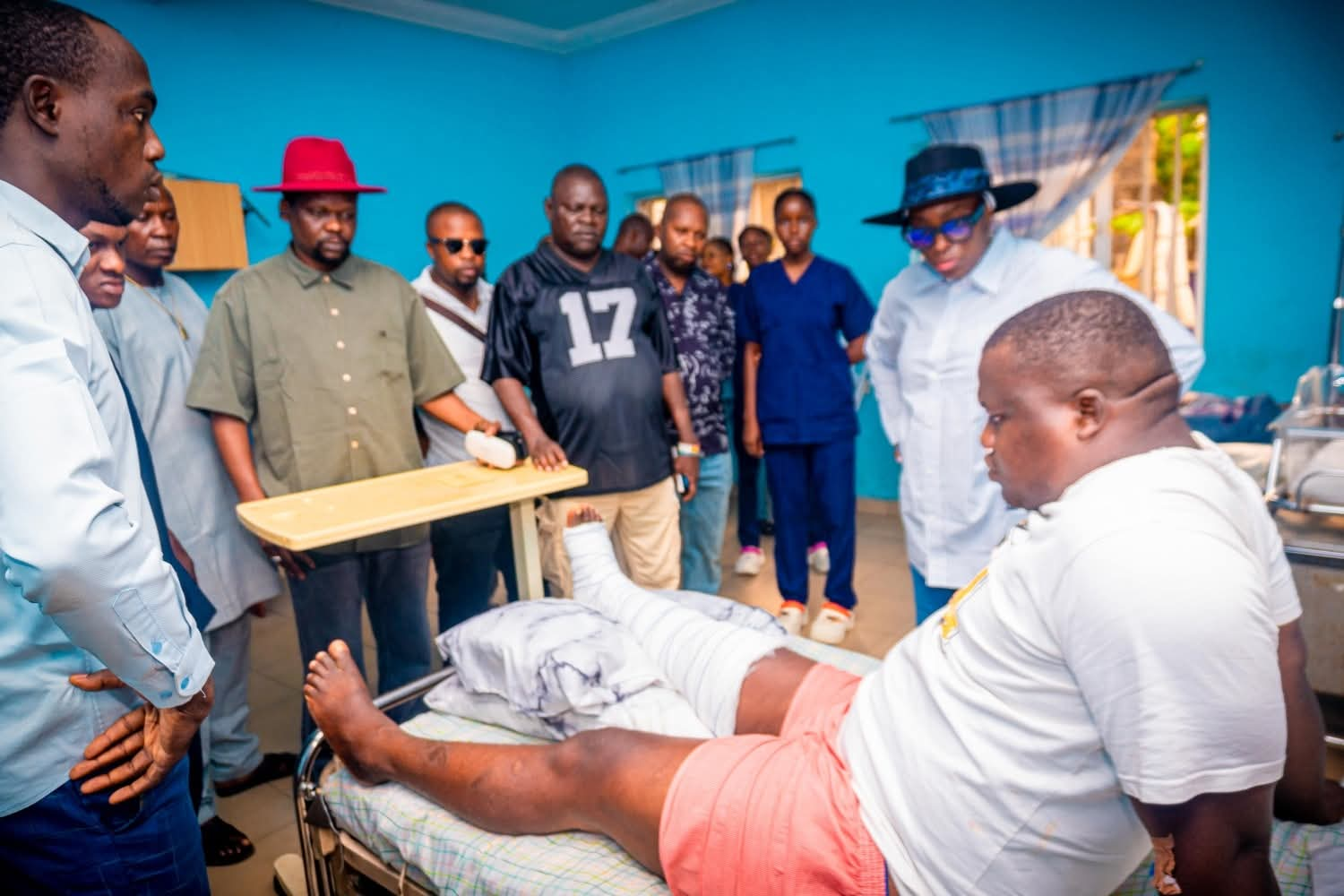
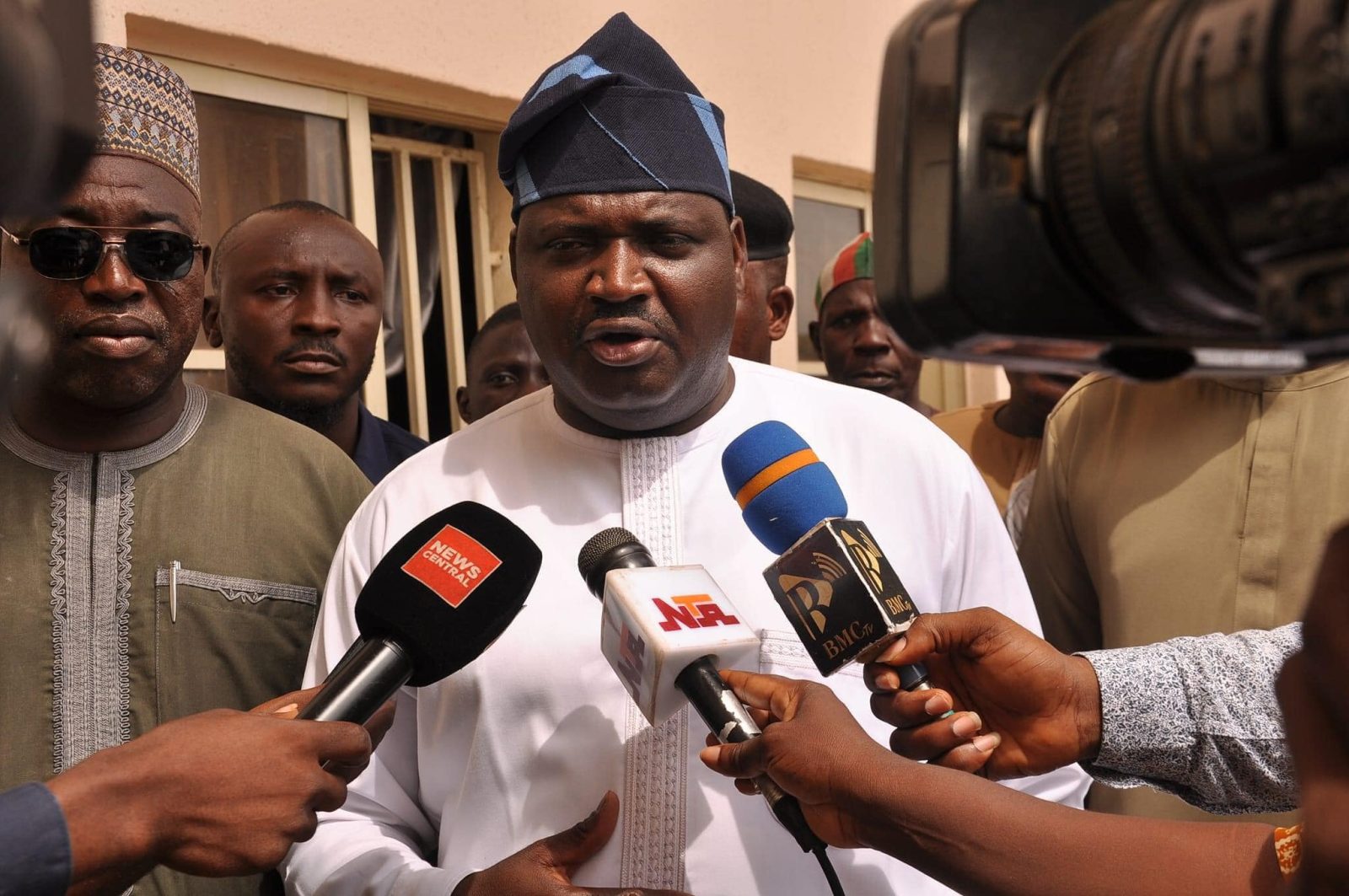

Leave a comment